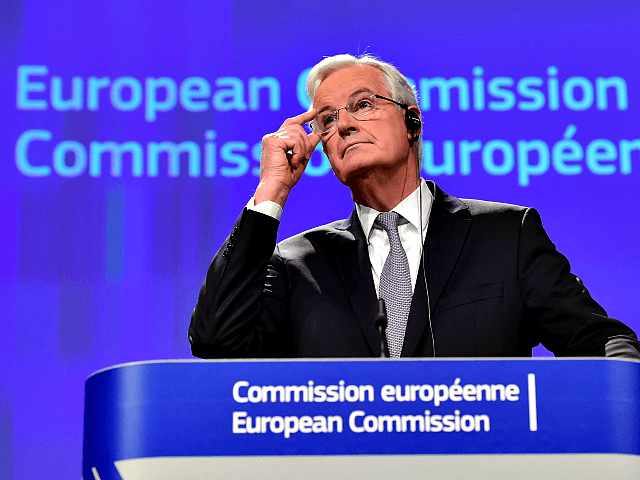FLORENCE (ITALY) (AFP) – The European Union’s chief Brexit negotiator said Friday that Britain was to blame for the uncertainty facing millions of expatriates in the run-up to the country’s departure from the bloc.
And he warned that Brussels would demand “iron-clad,” life-long guarantees on citizens’ rights as a condition of any overall divorce settlement.
“Some in the UK have tried to blame (EU) Member States for the continued uncertainty that citizens have been confronted with for ten months now (since the Brexit vote last year),” former French minister Michel Barnier told a conference in Florence.
“That is wrong. The only cause of uncertainty is Brexit.
“And the only way to remove uncertainty and to protect rights properly is through an Article 50 agreement.”
In an apparent nod to EU President Donald Tusk’s call for a cooling of this week’s cross-Channel sniping over Brexit, Barnier cut a reference to “political hot air” that had been included in an earlier draft of his speech.
But he cautioned that it would be extremely complex to reach a deal on the detailed residency, social security, pension, education and other rights of 3.2 million EU citizens living in Britain and 1.2 million Britons on the continent.
He said the EU 27 would insist on maintaining existing rights for its citizens and their families, including relatives who do not hail from EU states or live in an EU country.
These guarantees would be written into a withdrawal agreement that will be subject to the jurisdiction of the EU’s Court of Justice (ECJ), he said.
Barnier also insisted that the EU would make public the content progress of the negotiations — contrary to Britain’s desire for closed door talks, which Prime Minister Theresa May believes will make it easier to do an overall deal.
Barnier said he anticipated citizens’ rights being easy to agree in principle but hard to write into a legally precise text.
“We will not discuss our future relationship with the UK until the 27 Member States are reassured that all citizens will be treated properly and humanely,” he said.
“Otherwise, there can be no trust when it comes to constructing a new relationship with the UK.”
Barnier went on to cite a series of examples illustrating the range and complexity of the issues involved.
One involved a Polish car worker laid off in Britain. Should he be allowed to return home to look for work while receiving British unemployment benefit, as he currently could?
Another was of a self-employed photographer from Manchester who lives in Malaga and goes bankrupt. What will her rights to healthcare be in Spain and what about her social security situation if she returns to Britain, Barnier asked.

COMMENTS
Please let us know if you're having issues with commenting.